The Members of the European Parliament (MEPs) have approved new measures to prevent money laundering and terrorism financing in the European Union (EU). This development will have far-reaching implications for businesses across the EU.
Here’s what you need to know about the new AML measures and what to expect.
The new measures
The new measures consist of three pieces of draft legislation:
- The EU “single rulebook” which contains harmonized requirements across EU related to conducting due diligence on customers, ensuring transparency of beneficial owners, regulating the use of anonymous instruments such as crypto assets, regulating new entities such as crowdfunding platforms and “golden” passports and visas.
- The 6th Anti-Money Laundering (AML) directive which contains national provisions on supervision, financial intelligence units (FIUs), beneficial ownership registers, and assets stored in free zones.
- The regulation establishing the European Anti-Money Laundering Authority (AMLA) which will supervise specific credit and financial institutions, supervise 40 entities with the highest residual risk, and be present in at least two member states.
The new measures will require banks, asset managers, crypto asset managers, real and virtual estate agents, and high-level professional football clubs to verify their customers’ identity, what they own, and who controls the company.
Additionally, MEPs have set a limit of €7000 for cash payments and €1000 for crypto asset transfers where the customer cannot be identified. They also want to ban “golden” passports and impose strong AML controls on “golden” visas.
Beneficial Ownership
In terms of beneficial ownership, FIUs and other competent authorities must have access to information on beneficial ownership, bank accounts, and land or real estate registers.
Member states must also aggregate information on the ownership of goods such as yachts, planes, and cards worth over €200,000 or goods stored in free zones. #
Beneficial ownership means having a 15% plus one share or voting rights or other direct or indirect ownership interest, or a 5% plus one share in the extractive industry or a company exposed to a higher risk for ML/TF.
Beneficial ownership registers must be available digitally and include current and historical information for a defined period. The body in charge of the central register will have the right to request any information necessary to identify and verify beneficial owners from corporate and legal entities.
How about journalists and reporters?
Additionally, persons with legitimate interest, such as journalists, reporters, civil society organizations, and higher education institutions, should be able to access the register, including interconnected central registers.
How to prepare
The new AML measures will have a significant impact on businesses in the EU. Companies that are affected by these measures should start preparing to comply with the new regulations. This may require updating their AML policies, procedures, and systems. Failing to comply with the new regulations could result in significant fines and reputational damage.
The new AML measures are an important step towards preventing ML/TF in the EU. Businesses must take these measures seriously and take steps to ensure compliance with the new regulations. By doing so, they can not only avoid penalties but also contribute to a safer and more transparent financial system in the EU.



